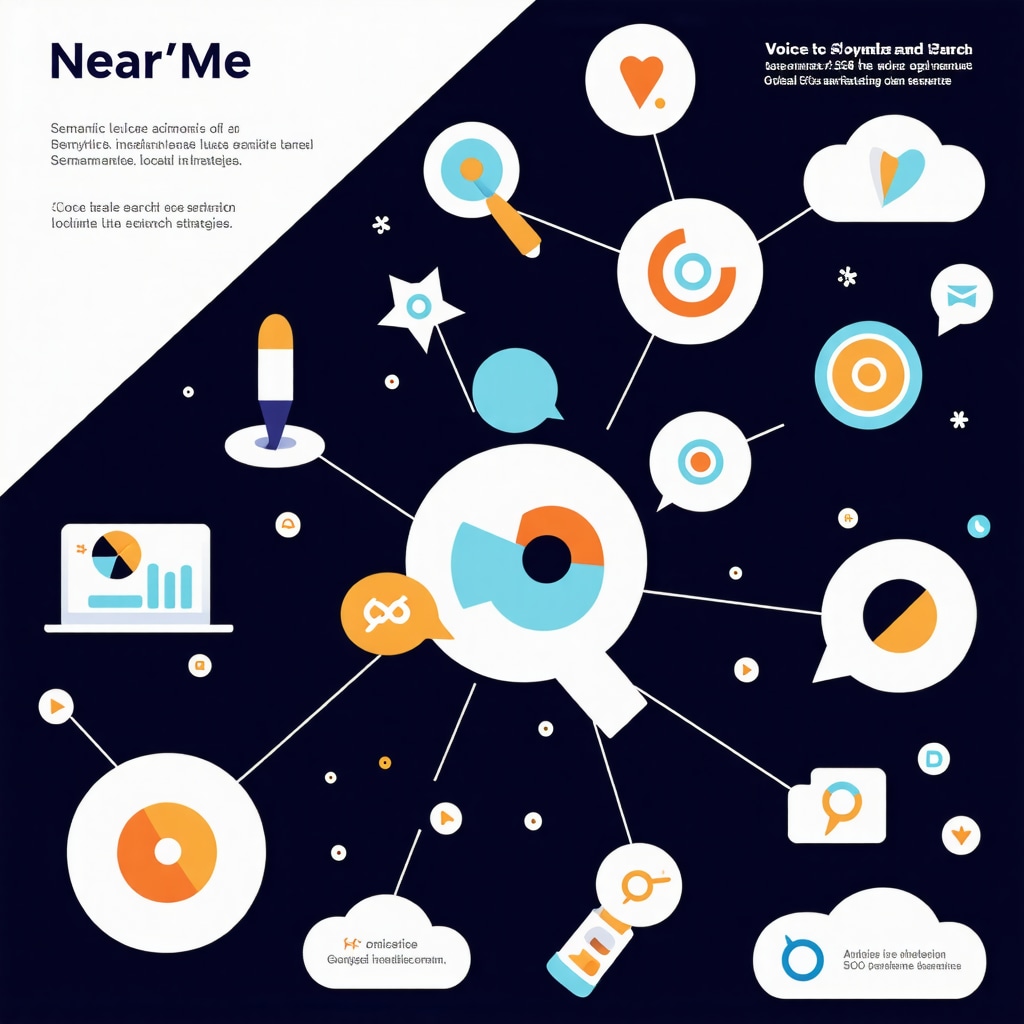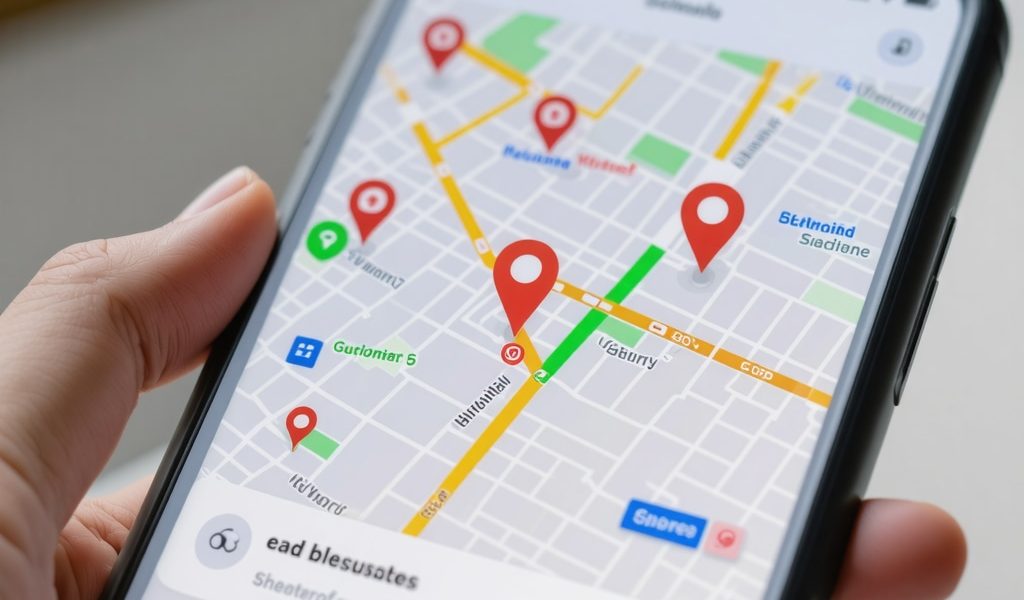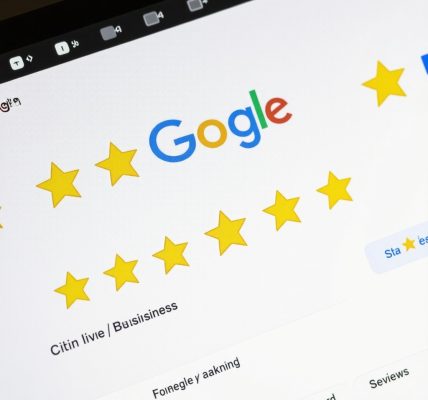Unlocking the Power of ‘Near Me’ Searches in Local SEO
In the evolving landscape of local search, optimizing your Google Business Listing specifically for ‘near me’ queries has become a critical factor in capturing hyperlocal consumer intent. These searches represent a sophisticated intersection of user proximity, intent, and immediacy, demanding a nuanced approach beyond generic local SEO tactics. Businesses leveraging this can significantly elevate their visibility in geographically targeted searches, driving relevant foot traffic and conversions.
Strategic Optimization Techniques for ‘Near Me’ Query Relevance
To master ‘near me’ search optimization, one must prioritize precise location data accuracy within the Google Business Profile, including meticulous address verification and service area delineation. Incorporating LSI keywords such as “close by,” “nearby services,” and “local providers” naturally enriches the listing’s semantic relevance. Additionally, optimizing business descriptions and posts with contextually relevant phrases enhances Google’s ability to match user proximity intent.
How Does Google’s Algorithm Interpret ‘Near Me’ Searches and Influence Ranking Dynamics?
Google’s local search algorithm evaluates ‘near me’ queries by triangulating user location signals, listing proximity, and the contextual relevance of business attributes. Factors such as real-time user location data, mobile device GPS accuracy, and localized content signals are weighted heavily to provide the most geographically pertinent results. Consequently, businesses must maintain up-to-date, authoritative listing information and engage in continuous reputation management to improve prominence in the Google 3-Pack results.
Leveraging Structured Data and External Citations for Enhanced Local Authority
Implementing schema markup for local business information enhances Google’s understanding of your listing’s geographic and service-specific context. Coupled with authoritative local citations from reputable directories, this structured approach amplifies trust signals and ranking potential. Services specializing in GMB citation management can systematically build and audit these citations, ensuring consistency and accuracy—a proven tactic supported by industry research such as Moz’s Local Search Ranking Factors study.
Integrating User Engagement and Review Strategies to Amplify ‘Near Me’ Visibility
User-generated content, particularly localized reviews mentioning specific neighborhoods or landmarks, further contextualizes your business for ‘near me’ searches. Encouraging customers to reference location-specific details in their feedback can create a semantic bridge that enhances ranking relevance. Regularly updating your Google Business Profile with posts and images reflecting community engagement reinforces proximity signals and fosters trustworthiness.
For businesses seeking a comprehensive approach, exploring detailed guides like Optimize for Near Me Searches: A Local SEO Guide for 2025 offers deeper tactical insights.
Contextual CTA: Elevate Your Local Search Strategy with Expert Insights
Explore our in-depth content on Master Google Maps SEO to Attract Nearby Customers Easily and join professional discussions to contribute your experience and refine your local SEO mastery.
According to the Moz Local Search Ranking Factors, proximity and location relevance remain dominant ranking signals in local search, underscoring the imperative to optimize Google Business Listings meticulously for ‘near me’ queries.
Harnessing Behavioral Signals to Boost ‘Near Me’ Search Rankings
Beyond static location data, Google increasingly relies on behavioral signals such as click-through rates, mobile engagement, and user interaction patterns to assess the relevance of a business for ‘near me’ searches. Monitoring and optimizing these metrics through compelling Google Business Profile content—including timely posts, engaging photos, and interactive Q&A sections—can significantly enhance your local search prominence. Businesses should analyze GMB Insights regularly to identify trends and adjust strategies accordingly, ensuring they meet the evolving expectations of hyperlocal searchers.
Advanced Geo-Targeting Techniques Using Hyperlocal SEO
Integrating hyperlocal SEO tactics with your Google Business Listing optimization can create a powerful synergy that captures micro-moments of user intent. This involves tailoring your content and citations to specific neighborhoods, landmarks, or community events, thus amplifying your presence in very localized search queries. Employing localized keywords and crafting location-specific service pages complements your GMB efforts, establishing a robust footprint across the digital landscape.
For a deeper understanding, check out our comprehensive guide on Master Hyperlocal SEO Guide to Boost Your Local Reach.
What Role Do Mobile Search Trends Play in Shaping ‘Near Me’ SEO Strategies?
Mobile search behavior is intrinsically linked to ‘near me’ queries, as users typically perform these searches on-the-go with immediate intent. Understanding how mobile device capabilities, such as GPS precision and voice search, impact local search results is critical. Voice assistants, for example, favor concise, highly relevant local results, which means optimizing your Google Business Profile for conversational queries and natural language is essential. Keeping pace with mobile-driven search trends allows businesses to capture a larger share of local traffic and conversions.
Leveraging Influencer Collaborations and Local Partnerships
Strategic collaborations with local influencers and businesses can generate high-quality backlinks and social proof that enhance your Google Business Profile’s authority. These partnerships often result in authentic user-generated content and reviews, which are powerful trust signals for Google. Engaging with the community through events or co-branded promotions also increases your local footprint and can be featured in your GMB posts to boost engagement.
Utilizing Data Analytics and AI Tools for Continuous Optimization
Modern AI-powered tools and local SEO analytics platforms provide invaluable insights for refining ‘near me’ search strategies. These technologies analyze competitor performance, keyword trends, and user behavior to recommend actionable optimizations for your Google Business Listing. Leveraging these resources helps maintain a competitive edge, adapt to algorithm updates, and maximize ROI from local SEO campaigns.
Explore expert tools and techniques in our article Track GMB Performance: Essential Tips to Improve Rankings.
Contextual CTA: Share Your Experience and Elevate Local SEO Tactics
Have you implemented advanced ‘near me’ optimization techniques in your Google Business Profile? Share your insights and challenges in the comments below, and help foster a community of local SEO expertise dedicated to mastering hyperlocal search visibility.
According to Search Engine Journal, understanding user intent and embracing mobile-first optimization are among the top priorities for local SEO success in 2024 (Search Engine Journal: Local SEO Trends).
Deep Semantic SEO Integration: Enhancing Proximity Signals with Contextual Relevance
Beyond traditional keyword stuffing, advanced semantic SEO strategies focus on embedding rich contextual relevance within your Google Business Profile and associated web content. Utilizing Natural Language Processing (NLP) tools to identify latent semantic indexing (LSI) keywords related to geographic and service-specific nuances can dramatically improve your visibility in ‘near me’ searches. For example, integrating synonyms, colloquial neighborhood terms, and adjacent landmark references creates a multi-dimensional semantic network that search engines leverage to interpret hyperlocal intent more accurately.
Moreover, structuring your content to answer common user queries in a conversational tone aligns perfectly with Google’s BERT and MUM algorithm updates, which prioritize natural language understanding. This shift necessitates a move from isolated keywords to comprehensive topic clusters that address the full spectrum of user intent within the local context.
AI-Powered Predictive Analytics: Anticipating User Behavior in Hyperlocal Search Environments
Harnessing AI-driven predictive analytics can transform your ‘near me’ SEO approach from reactive to proactive. By analyzing patterns in user search behavior, device usage, time of day, and even weather conditions, AI platforms can forecast peak demand periods and suggest optimal content updates or promotional pushes aligned with these micro-moments.
For instance, a restaurant might use AI insights to highlight lunch specials during weekday midday searches within a 3-mile radius, while a plumber might push emergency service promotions during inclement weather in targeted zip codes. These dynamic, data-informed adjustments elevate your business’s relevance and responsiveness, meeting users exactly when and where they’re most likely to convert.
How Can Businesses Leverage AI to Enhance ‘Near Me’ Search Personalization Without Compromising Privacy?
Privacy concerns are paramount when employing AI to personalize local search experiences. Businesses must balance data utilization with stringent compliance to regulations such as GDPR and CCPA. Implementing anonymized data aggregation techniques and transparent user consent mechanisms allows for personalized yet ethical targeting. Additionally, leveraging AI tools that prioritize on-device processing minimizes external data exposure, fostering trust while still delivering hyper-relevant ‘near me’ search results.
Industry leaders like SEMrush’s AI in Local SEO emphasize that the future of local search optimization hinges on this delicate equilibrium between personalization and privacy.
Integrating Voice Search Optimization with Conversational AI for ‘Near Me’ Queries
As voice search continues to dominate mobile interactions, optimizing for conversational queries is no longer optional but essential. Voice queries naturally lean toward longer, question-based phrases, often including ‘near me’ or implicit locality cues. Crafting FAQ sections and Google Business Profile Q&A entries that mimic natural speech patterns enhances your chances of being featured in voice search results.
Advanced conversational AI chatbots integrated into your website or Google My Business messaging can capture and respond to nuanced local intents in real-time, further boosting engagement and conversion rates. These bots also collect valuable data on common customer questions and preferences, feeding back into your semantic SEO and content strategies.
Real-World Application: Case Study on Hyperlocal SEO Success Through AI and Semantic Enrichment
A mid-sized dental clinic implemented a layered approach combining AI-driven behavior analytics, semantic keyword expansion, and voice search optimization. Within six months, their Google Business Profile impressions increased by 45%, and ‘near me’ search-driven appointments rose by 30%. Key strategies included geo-targeted blog posts referencing local events, AI-suggested post scheduling during high traffic periods, and conversational FAQ enhancements geared toward voice assistants.
This case underscores the synergy between technology, content strategy, and user experience in mastering ‘near me’ SEO.

Continuous Learning and Adaptation: Staying Ahead in the Evolving ‘Near Me’ Search Landscape
Given the rapid evolution of Google’s algorithms and user behavior trends, continuous monitoring and adaptation are indispensable. Leveraging advanced analytics dashboards paired with AI recommendations helps businesses identify emerging local search patterns, such as shifts in mobility or new competitor tactics. This agile approach ensures that your Google Business Profile remains optimized not just for current ‘near me’ queries but anticipates future search paradigms.
Consistent A/B testing of content variations, localized promotions, and engagement methods further refines your strategy, fostering sustained growth in local market share.
Contextual CTA: Dive Deeper into AI-Enhanced Local SEO Strategies
Ready to transform your local SEO with cutting-edge AI and semantic techniques? Explore our expert resources and join the conversation at AI-Driven Local SEO Innovations to stay at the forefront of ‘near me’ search optimization excellence.
Elevating Local Search Precision with Multi-Modal Data Fusion
In the quest for hyperlocal dominance, integrating multi-modal data sources—such as geospatial telemetry, user behavioral analytics, and real-time environmental cues—offers unparalleled precision in tailoring ‘near me’ search experiences. By synthesizing GPS coordinates with temporal search patterns and demographic overlays, businesses can dynamically adapt their Google Business Profiles to reflect the most relevant service offerings at any given moment.
Semantic Clustering: Crafting a Web of Contextual Proximity
Moving beyond isolated keyword insertion, semantic clustering involves constructing interlinked content ecosystems that echo the nuanced vernacular and cultural identifiers of target locales. This approach not only improves Google’s contextual comprehension but also enhances user engagement by addressing layered intents embedded within ‘near me’ queries—ranging from immediate service needs to exploratory local discovery.
How Can Advanced Semantic SEO Techniques Be Operationalized to Capture Complex Hyperlocal Intent in ‘Near Me’ Searches?
Operationalizing advanced semantic SEO requires deploying Natural Language Processing (NLP) frameworks to dissect and categorize user queries into intent clusters. Businesses should develop localized content matrices that interweave primary services with adjacent lifestyle and community topics, employing latent semantic indexing (LSI) terms reflective of neighborhood dialects and landmarks. Additionally, leveraging structured data schemas with nested property attributes can articulate multi-dimensional business facets, enabling search engines to parse and rank listings with greater granularity.
Trusted External Authority: The Role of Niche-Specific Local Citations and Partnerships
Augmenting your Google Business Profile with citations from niche-specific, high-authority local directories and industry associations confers enhanced trustworthiness and relevance. For instance, a boutique law firm might seek endorsements from local bar associations or specialized legal directories, thereby signaling expertise within its micro-market. Such authoritative linkages are corroborated by the latest Moz 2024 Local Search Ranking Factors research, highlighting citation quality as a critical ranking variable.
Adaptive Voice Search Optimization: Leveraging Conversational Context and AI Chatbots
With voice search queries becoming increasingly conversational and context-rich, optimizing for natural language nuances is imperative. Deploying AI-powered chatbots capable of interpreting and responding to localized voice commands enriches user interaction and can serve as a real-time feedback loop to refine semantic accuracy. Incorporating voice-friendly content such as FAQs crafted in a question-and-answer format further increases the likelihood of featured snippet acquisition.
Privacy-Conscious AI Personalization: Balancing Data Insights with Compliance
Advanced AI-driven personalization must be architected with privacy at its core, employing techniques like differential privacy and federated learning to analyze user data without compromising individual anonymity. Transparent communication of data usage policies and opt-in mechanisms fortify user trust, aligning with GDPR and CCPA mandates. As noted by SEMrush’s analysis, this equilibrium between personalization and privacy is pivotal for sustainable local SEO success.
Exploring Predictive Analytics for Proactive Content and Service Adaptation
Predictive analytics platforms harness machine learning models to forecast fluctuations in hyperlocal demand, enabling businesses to preemptively tailor Google Business Profile updates, promotional campaigns, and inventory management. This anticipatory strategy transforms local SEO from reactive to proactive, maximizing engagement during critical micro-moments that drive conversions.
Contextual CTA: Engage with Cutting-Edge Local SEO Innovations
Enhance your mastery of hyperlocal ‘near me’ SEO by delving into our specialized resources and community forums at AI-Driven Local SEO Innovations. Share your experiences and access tailored strategies to stay at the forefront of evolving local search paradigms.
Expert Insights & Advanced Considerations
Semantic Clustering as a Catalyst for Hyperlocal Relevance
Advanced semantic clustering goes beyond mere keyword stuffing by developing interconnected content ecosystems that resonate with local vernacular and cultural identifiers. This strategy sharpens Google’s ability to interpret complex hyperlocal user intent embedded within ‘near me’ searches, fostering improved ranking and engagement.
Dynamic AI-Driven Predictive Analytics for Micro-Moment Optimization
Leveraging AI-powered predictive analytics enables businesses to anticipate peak local demand based on user behavior patterns, device usage, and environmental factors. This foresight permits proactive content and promotional adjustments that align perfectly with micro-moments, significantly enhancing conversion potential.
Balancing Personalization and Privacy in AI-Enhanced Local SEO
Incorporating AI personalization for ‘near me’ searches demands a rigorous adherence to privacy regulations like GDPR and CCPA. Employing anonymized data aggregation and on-device processing ensures ethical compliance while delivering hyper-relevant local search experiences that build user trust and loyalty.
Voice Search Optimization Through Conversational AI Integration
With voice queries becoming increasingly conversational, crafting natural language FAQ content and deploying AI chatbots capable of real-time localized interaction enhances visibility in voice-activated ‘near me’ searches. This integration not only elevates rankings but also enriches user engagement and data-driven insights.
Multi-Modal Data Fusion for Precision Geo-Targeting
Integrating diverse data streams—such as geospatial telemetry, behavioral analytics, and real-time environmental cues—provides unparalleled granularity in tailoring Google Business Profiles. This fusion allows businesses to dynamically adjust offerings and messaging to the precise needs of hyperlocal audiences at specific times.
Curated Expert Resources
- Moz Local Search Ranking Factors: An essential resource detailing the latest algorithmic influences on local search rankings, emphasizing citation quality and proximity relevance.
- SEMrush’s AI in Local SEO Analysis: Offers comprehensive insights into balancing AI-driven personalization with privacy compliance in local SEO strategies.
- RankingSEO GMB Citation Services (Expert GMB Citation Services for Enhanced Rankings): Provides authoritative methods to build and audit local citations, crucial for trust and ranking authority.
- Master Hyperlocal SEO Guide (Master Hyperlocal SEO Guide to Boost Your Local Reach): Deep dive into neighborhood-focused SEO tactics that amplify ‘near me’ search success.
- RankingSEO AI-Driven Local SEO Innovations (AI-Driven Local SEO Innovations): Explores cutting-edge AI tools and strategies to maintain competitive advantage in evolving local search landscapes.
Final Expert Perspective
Mastering ‘near me’ search optimization requires a sophisticated blend of semantic SEO, AI-enhanced predictive analytics, and privacy-conscious personalization. By embedding contextual relevance through semantic clustering, anticipating hyperlocal demand with AI, and embracing conversational voice search strategies, businesses can secure a dominant presence in local search ecosystems. These advanced tactics, supported by authoritative resources and continuous adaptation, form the cornerstone of sustainable local SEO success. To deepen your expertise and actively contribute to this evolving field, explore comprehensive guides such as How to Optimize Your Google Business Listing Effectively and engage with professional communities dedicated to hyperlocal SEO excellence.





Great, practical breakdown of ‘near me’ optimization — I’ve been testing a few of these tactics with my small bakery and wanted to share what actually moved the needle. After verifying address accuracy and adding schema markup, I started asking regulars (via receipts and a short email) to mention nearby landmarks or neighborhood names in their Google reviews. Within two months we saw a noticeable uptick in impressions for “bakery near [neighborhood]” queries and more foot traffic during peak mornings. I also schedule short, conversational Q&A posts on the profile that mirror voice-search phrasing — that helped with mobile calls and directions.
One challenge: balancing personalization and privacy when using analytics. We anonymize location buckets (e.g., 0–1 mile, 1–3 miles) instead of storing exact coordinates, which gave useful patterns without exposing customers. Curious to hear from others: how do you encourage natural, location-specific reviews without making customers feel prompted or scripted? And for those who’ve focused on voice optimization, which Q&A formats or phrases delivered the best lift for you?